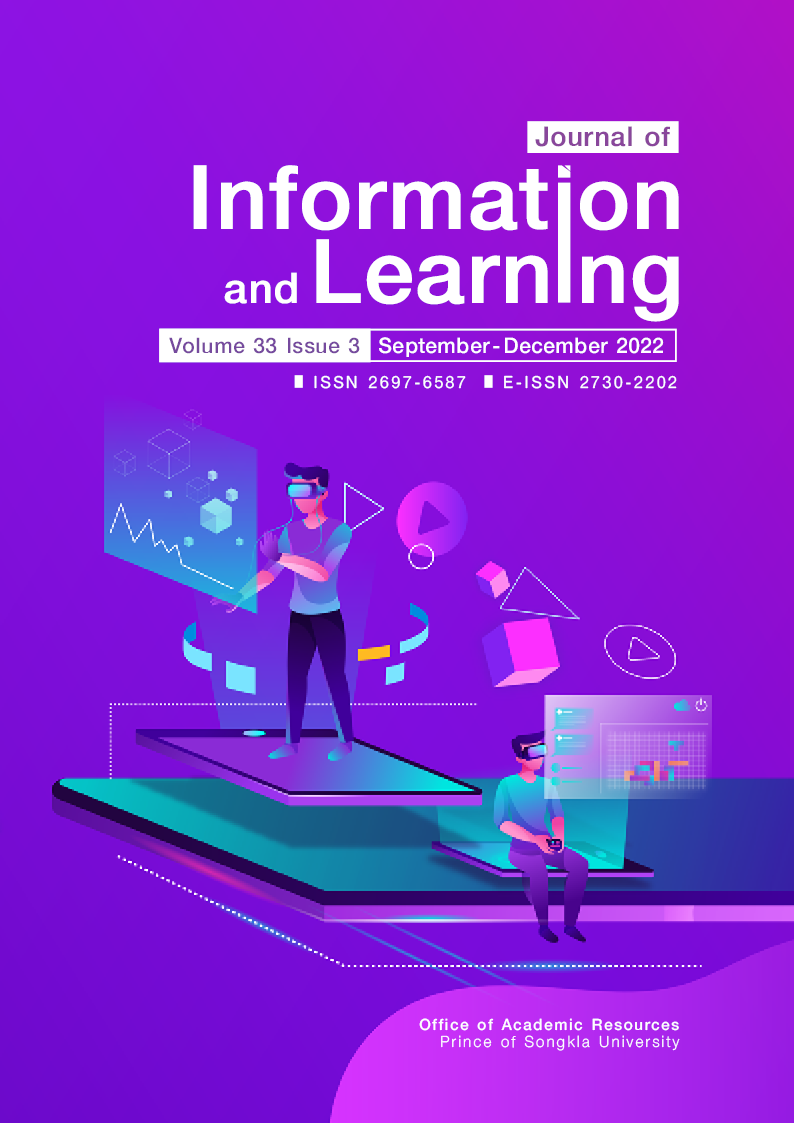Development of an Instructional Supervision Process Based on the Feedback Approach to Enhance Growth Mindset in Instruction of Pre-Service Teachers
Main Article Content
Abstract
The objectives of this study were to develop an instructional supervision process based on the feedback approach to enhance growth mindset in instruction of pre-service teachers and to study the effect of the process. The study consisted of four stages: 1) researching conditions and problems in pre-service teachers’ instruction management, 2) developing a draft of instructional supervision process, 3) testing the process, and 4) developing a complete process. Participants were 10 undergraduate students, majoring in Primary Education who were selected by purposive sampling technique. The research instruments were an assessment scale of the growth mindset in instruction of pre-service teachers, an instructional behavior observation form and an informal interview form. The quantitative data were analyzed by using the Wilcoxon matched-pairs signed rank Test and the qualitative data were analyzed by using a contents analytics technique.
The results can be concluded that the developed instructional supervision process consisted of three steps: 1) inspiring pre-service teachers to realize their teaching goals, 2) observing classes and exchanging experiences, and 3) enhance learning for self-improvement. The developed process positively affected pre-service teachers' average scores in the assessment scale of the growth mindset in instruction of pre-service teachers; the post-participation process was significantly higher than before at the 0.05 level. Overall, all pre-service teachers clearly exhibited behavior that reflected the growth mindset in instruction, both the behaviors that reflected the ideas of the students and themselves as teachers.
Article Details

This work is licensed under a Creative Commons Attribution-NonCommercial-NoDerivatives 4.0 International License.
The Journal of Information and Learning is operated by the Office of Academic Resources, Prince of Songkla University. All articles published in the journal are protected by Thailand copyright law. This copyright covers the exclusive rights to share, reproduce and distribute the article, including in electronic forms, reprints, translations, photographic reproductions, or similar. Authors own copyrights in the works they have created as well as the Office of Academic Resources. The Journal reserves the right to edit the language of papers accepted for publication for clarity and correctness, as well as to make formal changes to ensure compliance with the journal's guidelines. All authors must take public responsibility for the content of their paper.
References
Acheson, K., & Gall, M. (2003).Clinical supervision and teacher development preservice and inservice applications. John Wiley & Sons.
Boyan, N., & Copeland, W. (1978). Instructional supervision training program. Charles E. Merrill Publishing Company.
Brown, S., & Gillis, M. (1999). Using reflection thinking to develop personal philosophies. Journal of Nursing Education, 38(4), 171-175.
Bunphirom, S. (2014). Classroom management. Triple Education. Carter, B. (2012). Facilitating preservice teacher induction through learning in partnership. Australian Journal of Teacher Education, 37(2), 99-113. http://dx.doi.org/10.14221/ajte.2012v37n2.1
Chokpaisarn, P. (2010). Supervisory behaviors affecting the change in teachers' teaching behaviors [Unpublished master’s thesis]. Chulalongkorn University.
Dweck, C. S. (2006). Mindset: The new psychology of success. Random House.
Dweck, C. S. (2020, March 20). How self beliefs affect motivation and thus achievement. Self Theories. http://www.learning-knowledge.com/self-theories.html
Glickman, C. D. (2010). Supervision and instructional leadership: A developmental approach. Allyan and Bacon.
Goldstein, S., & Brooks, R. (2007). Understanding and managing children’s classroom behavior: Creating sustainable, resilient schools. John Wiley & Sons.
Goytha, M. (2003). Teaching behaviors of teachers in the Thai language course under the office of primary Education Saraburi [Unpublished doctoral dissertation]. Kasetsart University.
Gutshall, C. A. (2013). Teachers' mindsets for students with and without disabilities. Psychology in the Schools, 50(10), 1073-1083.
Hattie, J., & Timperley, H. (2007). The power of feedback. Review of Educational Research, 77, 81-112.
Khaocharoen, P. (2018). Development of supervision model by using coaching and mentoring of mentor student teachers Faculty of Education, Phranakhon Si Ayutthaya Rajabhat University. Journal of Education, 19(1), 125-136.
Kranikit, P. (2009). E-Portfolios for the student teachers. Journal of Education Studies, 38(1), 65-81.
Laoriandee, W. (2013). Supervision of teaching and coaching: professional development, theory, strategic implementation. Silpakorn University publisher, Sanamchandra Palace Campus.
Lumthong, D. (2010). The effects of feedback styles on visual art development: an application of feedback and feedforward approaches [Unpublished master’s thesis]. Chulalongkorn University.
Milintra, K. (2014). Research and development of a coaching process based on tranformative learning theory for changing the mindset in instruction of elementary school teachers [Unpublished doctor dissertation]. Chulalongkorn University.
Rheinberg, F. (2001, April). Teachers reference-norm orientation and student motivation for learning [Conference session]. AERA Conference, Michigan, United States.


